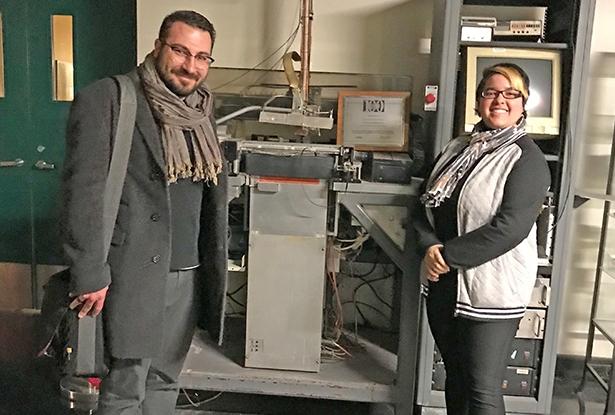Kean University Scientist, Designers Support Portable Operating Room Project

Kean University’s top academic leader and others are collaborating with the Massachusetts Institute of Technology (MIT) D-Lab and Harvard Medical School to develop a backpack-sized portable operating room called SurgiBox that is designed to reduce the risk of infection for patients and medical practitioners operating in remote parts of the world. MIT D-Lab works with people around the world on practical solutions to global poverty challenges.
Kean Provost and Vice President for Academic Affairs Jeffrey H. Toney, Ph.D., was recently named to the SurgiBox Advisory Board. With a background as a chemist and in the pharmaceutical industry, he will provide regulatory guidance to the project.
“My role is to help them get SurgiBox to the next level – clinical testing – which is required for medical devices,” said Toney. “I am also always reminding them of the importance of including students, and I am looking for new and different ways that our students can contribute to their mission and process.”
Toney’s involvement in SurgiBox has already resulted in a collaboration with Efe Kutuk, an industrial design professor in Robert Busch School of Design, and his student Sara Camacho. They recently traveled to Boston to review SurgiBox’s prototype and recommend design improvements.
“They had a long step-by-step process to set up the device, which was not intuitive and not practical for use in an emergency situation by a doctor in the field,” said Kutuk. “I was able to eliminate several steps so it will be much faster to set up and easier to manufacture. Also, all of the components were separate, and we came up with one seamless design solution.”
For Camacho, a junior industrial design major from Troy, New York who has an internship with SurgiBox, the project has been “eye-opening and life-changing.”
“Working to solve real-world problems is definitely something I will be looking forward to doing more of as I enter the professional world,” she said. “My experience with SurgiBox is giving me a taste of that. Design is so important in the real world. In some instances it can be urgent, and especially within the medical industry, it can be the difference between life and death. It didn’t take long for my internship at SurgiBox to teach me that.”
Toney’s association with SurgiBox stems from his longstanding involvement in the American Association for the Advancement of Science (AAAS) Science and Human Rights Coalition, based in Washington, DC. He was one of the judges of a poster competition several years ago where SurgiBox CEO Debbie Teodorescu, then a Harvard Medical School student, won first place. The idea she presented was SurgiBox.
“I was so impressed by what she presented, that she and I have kept in touch over the past few years, and recently she reached out to see if I could recommend any good design students to contribute to SurgiBox,” said Toney. “I hope faculty will see the importance of remaining engaged in groups like the Coalition. Over time, such relationships can go in directions that you would never predict.”
Kutuk and Camacho will continue working with SurgiBox, streamlining the prototype, simplifying the user manual, and creating visuals and sketches for the medical device startup. They will be back at MIT D-Lab in March, ready for the next step.
“Everybody can design another high-end chair, but being involved in a socially conscious project like this, which looks to save lives, is priceless,” said Kutuk. “Having students involved in this kind of a project makes me really proud.”
Photo Caption: Michael Graves College Industrial Design Program Coordinator Efe Kutuk with student Sara Camacho at MIT's D-Lab.